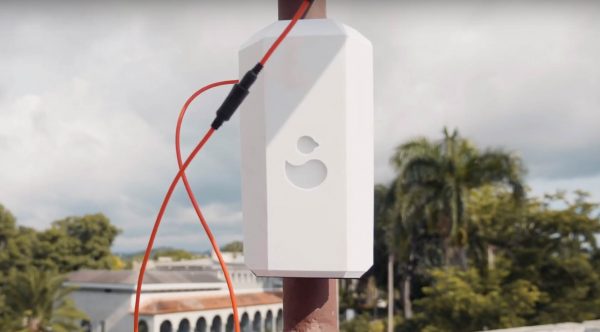The Linux Foundation open-sources hardware to help with disaster relief

Project OWL, the winner of 2018's Call for Code, is a cloud-based analytics tool that assists in organization, whereabouts, and logistics for disaster response.
Today The Linux Foundation is announcing that it's making Project OWL's IoT device firmware open source to help developers around the world build mesh network nodes for global emergency communications networks.
Project OWL envisions these nodes creating large-scale communications networks in the wake of natural disasters. The open source release of OWL's firmware can quickly turn a cheap wireless device into a 'DuckLink', a mesh network node capable of connecting to any other Ducks physically around it. This release marks a significant milestone putting the 'ClusterDuck Protocol' into the hands of global developers. This is a starting point to even larger efforts in communities around the world to provide communications where infrastructure is degraded or non-existent.
"Becoming part of The Linux Foundation community is a huge boost in accelerating our goal to better prepare communities and mitigate impact when hurricanes, floods or earthquakes strike. We want to challenge developers to build mesh network nodes for global emergency communications networks leveraging our newly open-sourced IoT firmware," says Bryan Knouse, co-founder of Project OWL.
In March last year, Project OWL and IBM took on a large-scale pilot in Puerto Rico, deploying over 63 ducks each covering two square miles. This was followed by two additional pilots in the west and southeast of the island, engaging with local students, businesses, government representatives, and first responders. OWL currently has 30 permanent, solar-powered devices deployed across Puerto Rico in areas that are vulnerable to earthquakes, flooding, fire or other weather conditions.
"Project OWL was our first Call for Code winner that went through the Code and Response incubation process, and we're excited to see this solution grow closer to reality," says Daniel Krook, IBM chief technology officer for Call for Code and Code and Response. "We were impressed with their combination of a complete software and hardware open source solution, utilizing an AI-powered disaster coordination platform paired with a robust communication network to reach people when connections are down. IBM is committed to using the power of our network and technical know-how to alleviate suffering from climate change and natural disasters, and we're thrilled to have the support of The Linux Foundation as we deploy the project globally."
You can find out more on the Project OWL site.
Image credit: IBM
